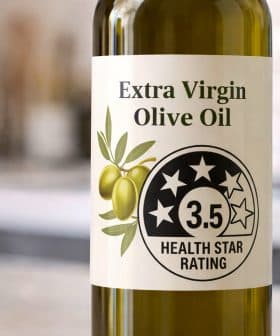Nutrients in MedDiet Linked With Prevention or Delay of Degenerative Eye Disease
Following a Mediterranean-style diet high in fruit, vegetables, and omega‑3 from oily fish can prevent age-related macular degeneration, according to French researchers. The study found that a diet rich in antioxidants, omega‑3 fatty acids, and vitamins can protect the macula and delay the onset of the disease, providing new insights into the role of nutrition in preventing AMD.
Following a Mediterranean-style diet may prevent the development of age-related macular degeneration (AMD), according to the findings of a team of French researchers.
In the recent Alienor epidemiological study, researchers from Inserm and the University of Bordeaux investigated the correlations between AMD, the leading cause of vision loss in industrialized countries and nutrition.
Omega‑3 fatty acids within the macula have neuroprotective actions and properties that prevent the abnormal growth of blood vessels, thus they help prevent degenerative retinal diseases such as AMD.
“The most beneficial diet for preventing AMD is a Mediterranean diet high in fruit and vegetables and enough omega‑3 from oily fish,” said Bénédicte Merle, an Inserm researcher and the lead author of the study.
The researchers found that following a diet rich in antioxidants, omega‑3 polyunsaturated fatty acids, vitamin C and zinc helps protect the macula, which forms part of the retina in the eye.
See Also:Health NewsAdherence to the Mediterranean diet, which consists of plenty of fruit, olive oil, oily fish, vegetables and whole grains, was shown to prevent or delay the onset of the disease, which has no cure.
“The follow-up of the 1,000 participants of the Alienor cohort for more than eight years has allowed us to highlight strong relationships between nutritional factors and AMD: omega‑3 fatty acids, vitamins, Mediterranean diet and recently plasma lutein,” Merle told Olive Oil Times.
“This work highlights the important role of nutrition in AMD and emphasizes that nutritional prevention in this disease is one of the keys to delaying its onset,” he added.
The finding is significant as it upends the results of a 2017 review of existing scientific literature, which concluded that the evidence that people following a diet rich in antioxidants, vitamins and minerals were less likely to develop AMD was inconclusive.
“Taking vitamin E or beta-carotene supplements will not prevent or delay the onset of AMD,” the researchers wrote. “The same probably applies to vitamin C and the multivitamin (Centrum Silver) investigated in the one trial reported to date. There is no evidence with respect to other antioxidant supplements, such as lutein and zeaxanthin.”
However, researchers involved in the Alienor study followed a group of 963 residents of Bordeaux who were aged 73 or older. Ultimately, the researchers obtained complete ophthalmologic and plasma carotenoids data for 609 participants.
Throughout the study, the researchers closely observed the link between the presence of lutein and zeaxanthin in plasma and the development of the disease.
An initial blood test recorded the levels of lutein and zeaxanthin in the patients with follow-up measurements taken every two years. Over the course of the study, 54 patients developed AMD.
Both substances are carotenoids and are abundant in leafy green vegetables such as spinach, cabbage and chard. These pigments are highly concentrated in the macula and play a specific role in the functioning of the eyes. Neither compound can be synthesized by the body and can only be obtained through diet.
Unlike previous investigations, which solely looked at the dietary information of the participants, the Alienor study analyzed their blood samples to demonstrate a definitive link between the levels of lutein and zeaxanthin and a reduced risk of contracting AMD.
“The macula, the central part of the retina, is very rich in omega‑3 polyunsaturated fatty acids, which come from fatty fish, as well as lutein and zeaxanthin,” Merle said.
“Omega‑3 fatty acids within the macula have neuroprotective actions and properties that prevent the abnormal growth of blood vessels, thus they help prevent degenerative retinal diseases such as AMD,” he added. “Lutein and zeaxanthin play an important role by filtering the blue light that is toxic to the retina.”
The researchers found that higher levels of the carotenoids in the blood reduced the risk of developing advanced AMD by 37 percent.
The results from this study pave the way for further research into the role of diet in the development of AMD and other ocular diseases.
“We now know the benefits of many nutrients on the onset of AMD, the next step seems to be a clinical trial to validate the observational work,” Merle concluded.









